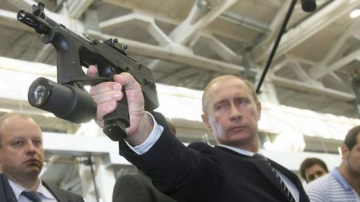 Economic sanctions against Tsar Putin will have a significant impact on the IT channel, according to analysts at Context.
Economic sanctions against Tsar Putin will have a significant impact on the IT channel, according to analysts at Context.
According to a report cross-border payments are extremely challenging if not impossible for channel players and their customers now that major banks are locked out of the SWIFT system. The EU and US have banned the supply of hi-tech goods including semiconductors, computers, telecoms and information security equipment. Russian aircraft are banned from European airspace, and Boeing/Airbus have stopped servicing the Russian aviation industry, which will further restrict transport flows.
Cisco and HP have developer hubs in Ukraine, which will be impacted by the invasion. But there are also supply issues. Ukraine supplies 90 percent of America’s neon, which is critical for the lasers used in chipmaking. Around half of Intel’s supply comes from the region. Russia is a major producer of Palladium, a metal present in a variety of electronics equipment, where it’s commonly used as solder.
Costs to the transportation of goods will increase as air space is closed and shipping lanes in the Black Sea are restricted. Some reports claim shipping rates could double or triple, while air freight rates could go even higher, Context said.
Context said that infrastructure and security are particularly exposed to the Russian market. Whilst representing just 14 percent of the European market, sales in this category account for 28 percent of the total in Russia. On the other hand, the software and licences and telecoms categories are less exposed. The percentage point difference between Europe and Russia in the former is -7 percent and the latter is -9 percent, driven by the fact that the preference in Russia is for mobile phones rather than smartphones, and for local vendors.
Apple and Microsoft are less exposed than most. Apple had a 13.2 percent share of the European distribution market in 2021 but just 2.5 percent in Russia, while Microsoft’s figures were 4.4 percent and 1.7 percent respectively.





